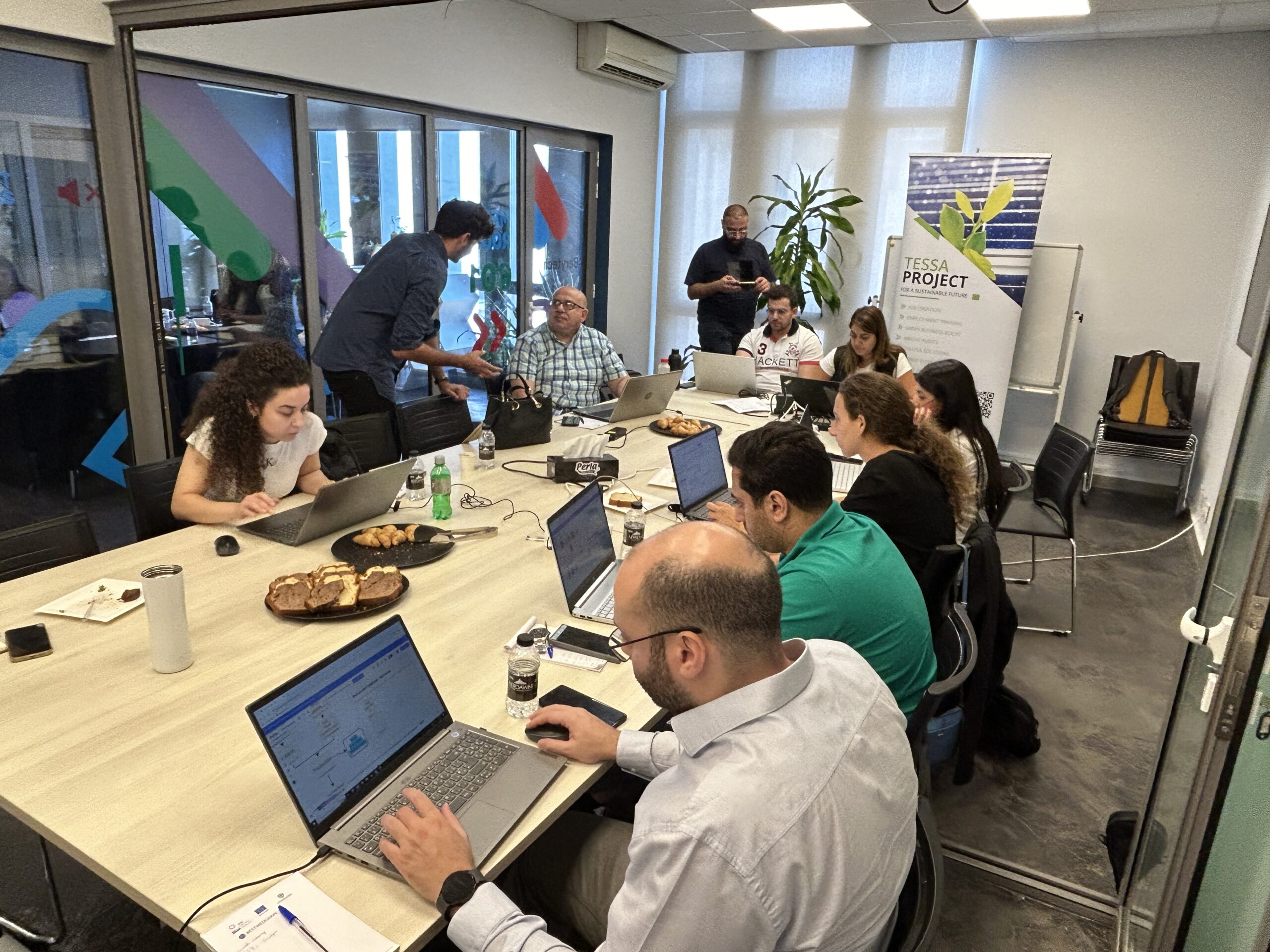
As part of the TESSA Project, ICU in partnership with Berytech is driving a significant initiative to enhance the sustainability practices of the 20 Selected SMEs. This initiative focuses on delivering sector-targeted sessions and one-to-one coaching sessions that utilize the comprehensive Embrace Toolkit, tailored to the specific needs of different sectors.
The Embrace Toolkit Framework:
The Embrace Toolkit is designed to guide businesses through the process of integrating sustainability and circular economy principles into their operations. Key components of the framework include:
- PESTEL Analysis: This tool helps businesses analyze the macro-environmental factors that impact their operations. By examining Political, Economic, Social, Technological, Environmental, and Legal factors, SMEs can develop strategies to navigate these influences and create more resilient business models.
- Lifecycle Assessment (LCA): The LCA component enables businesses to evaluate the environmental impacts of their products or services throughout their lifecycle—from raw material extraction to disposal. This assessment identifies key areas where improvements can be made to reduce environmental impact and enhance sustainability.
- Resource Flow Analysis: This part of the toolkit examines how resources are used within the business. It helps identify inefficiencies and opportunities for optimization, ensuring that resources are used more effectively and sustainably.
- Waste Opportunity Identification: By analyzing waste streams, this tool helps businesses find ways to turn waste into valuable resources. This approach supports the principles of a circular economy, where waste is minimized, and resources are continually reused and recycled.
- Green Business Model (GBM): The toolkit includes a GBM component that helps businesses develop sustainable business models. This involves creating strategies that align with sustainability goals, reduce environmental impact, and promote long-term viability.
Sector-Specific Sessions:
Berytech’s approach involves organizing sector-specific sessions to ensure that the unique challenges and opportunities within each industry are effectively addressed. These sessions are structured as follows:
- Healthcare: Addressing waste management, resource optimization, and sustainable supply chain practices.
- Hospitality: Focusing on energy efficiency, water conservation, and sustainable food sourcing.
- Food Processing: Implementing sustainable production methods, waste reduction, and resource-efficient practices.
- Manufacturing: Emphasizing lifecycle assessment, resource flow optimization, and waste minimization.
- Media: Promoting sustainable content production, reducing environmental impact, and raising awareness through media channels.
One-to-One Coaching Sessions:
To provide more personalized support, Berytech is also conducting one-to-one coaching sessions for the SMEs. These sessions were crucial for diving deeper into the specific needs and contexts of each SME, ensuring tailored advice and support.
Through the targeted sector-specific sessions and one-to-one coaching, the TESSA Project, in collaboration with Berytech and ICU, is equipping Lebanese SMEs with the tools and knowledge needed to transition towards more sustainable and efficient business practices. The Embrace Toolkit has been a cornerstone of this initiative, providing a structured approach to identify opportunities for improvement and implement actionable solutions. As these SMEs continue to integrate sustainable practices, they contribute not only to their own growth and resilience but also to the broader goal of environmental sustainability in Lebanon.
- One to One coaching session
- ECOCANVAS: circular Business Model Prototyping
- ECOCANVAS: Business Values, Mission and Vision
- Overview of the Embrace Toolkit Framework
- Sectorial coaching session for Hospitality and Media – Embrace Toolkit part 1
- Sectorial coaching session for the Manufacturing industry – Embrace Toolkit part 1
- Sectorial coaching session for the food processing industry – Embrace Toolkit part 1







